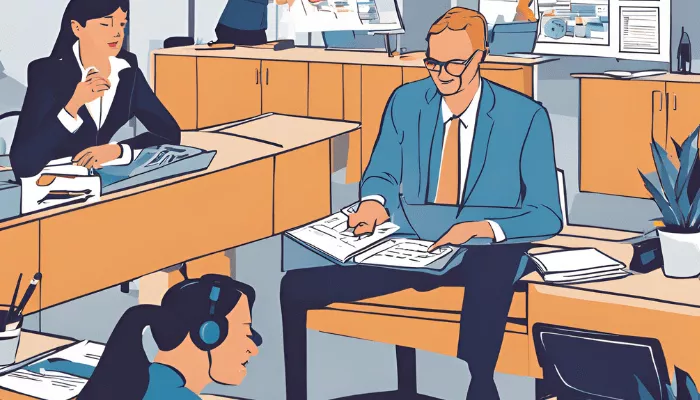by Venchito Tampon | Last Updated on October 31, 2024
Coachability is a crucial factor in both personal and professional success. Being coachable means receiving feedback to improve in specific areas, whether as a professional or a human being.
In the human resource competence framework, coachability focuses more on the attitude element than on skills and knowledge.
Shifting the attitude from being “I know everything” to “I have a lot to learn” speaks of how coachable a person is.
Coachability is the willingness to learn from others. It doesn’t demand title, status, or positions. It is the state of mind of someone looking to learn more.
When someone is coachable, he opens himself to opportunities for leadership, as organizations today are now seeking aspiring managers who have an appetite for learning.
As individual contributors yet to be promoted, when they are coachable, they can perform well at work without less supervision. They get to accept feedback from their superiors or whoever manages their performance.
In this post, we’ll look at measures to be coachable.
How to Be Coachable?
1. Develop a Growth Mindset
Backed by decades of research, psychologist Carol Dweck is one of the movers of the growth mindset principle. His study of human behavior among successful people in the world shows two kinds of mindsets, regardless of status and position: growth mindset and fixed mindset.
A person with a growth mindset relies on “effort” to succeed. In times of failure, growth-oriented people turn every challenge into an opportunity for personal development. They don’t just stick to what they know but find ways to learn from other people’s experiences.
Developing a growth mindset has a lot to contribute to being coachable. There is intentionality for a coachable person to grow in areas he’s unfamiliar with or has weak spots on.
The key is to adopt a growth mindset daily through conversations with trusted people, coaches, or mentors in the workplace.
2. Be Part of a Growing Environment
Being part of an environment where people demand growth for themselves has a positive psychological effect on someone’s sense of coachability.
Given that you’re surrounded by these people most of the time, you find yourself listening to their conversations that compose ways and means to seek professional development. As a result, you’ll find yourself unconsciously asking for self-growth initiatives.
If you feel you aren’t disciplined enough or have some barriers to coaching, join a growing community that can push you toward success.
3. Seek Coaching
Organizations today are investing in professional coaching and mentoring programs for their managers and supervisors. This enables their leaders to harness the power of coaching their associates (or staff members), so they remove any roadblock to achieving their individual key objectives.
If your company doesn’t have any coaching initiatives, start investing in your own coaching.
Hire professional coaches accredited by ICF (The International Coaching Federation). This leading global organization certifies coaches. Or, if you want to maximize your strengths, you may seek coaching from Strengths Finder coaches.
Jumpstart your coaching journey with either of these two types of coaches.
4. Never Underestimate The Power of Conversations
Daily conversations with people you interact with at work could be a gateway to some coaching experiences. If you’re dealing with stakeholders, suppliers, superiors, or any professional you know, you can get wisdom and insights from a typical conversation.
Prepare to ask questions and listen to their experiences and expertise.
You may also attend networking events, seminars, and conferences in your industry and participate in discussions during activities. By building relationships with new people, you’ll immerse yourself in growth conversations, which tremendously affects your coachability.
5. Demand Follow Through
If coaching happens outside the organization or company, the only way to sustain your experience is to demand follow-through. This means you’ll invest long-term in coaching so that it continuously adds value to your daily professional and personal success.
One-time coaching sessions won’t do a big miracle on your professional success. So, it is a must to schedule coaching sessions regularly, or at times, there are roadblocks to success that you experience.
6. Serve Others
Service may seem contrary to coachability, as you need to coach yourself first before coaching others. But in my training experiences, I’ve seen that those professionals who are not yet coachable improve as soon as they begin to serve.
This means that when we act and serve like leaders and coaches, we also become coachable. As the saying goes, you cannot help others if you can’t help yourself. This pushes you to pursue personal development to fill other people’s cups with your knowledge and wisdom.
You may volunteer in CSR programs (corporate social responsibility programs) in your office or start one with a non-profit organization. Make every effort to be active in non-work activities, as they could affect your mental state when you want to improve your coachability in the workplace.
Improve Coachability Daily
Coachability is a daily decision to pursue self-improvement. No one demands more from you than yourself. Whether it is an initiative of the company you’re in or your personal choice, coachability benefits you in many ways.
The Author
Venchito Tampon
Venchito Tampon is a Filipino motivational speaker, Business Consultant, Founder and Lead Corporate Trainer of Rainmakers Training Consultancy. He trained and spoken in over 250+ conventions, seminars, and workshops across the Philippines and internationally including Singapore, Slovakia, and Australia. He has worked with top corporations including SM Hypermarket, Shell, and National Bookstore.
He also founded SharpRocket, a digital marketing company, Blend N Sips, eCommerce for coffee supplies, and Hills & Valleys Cafe, a local cafe with available franchising.
He is a certified member of The Philippine Society for Talent Development (PSTD), the premier organization for Talent Development practitioners in the country.
An active Go Negosyo Mentor (of Mentor Me program) and a business strategist and consultant.
You may also like
Best Leadership Training Providers in the Philippines [2026]
If you’re short on time: After evaluating 15+ corporate training providers in…
Leadership Training Guide Philippines in 2026: Types, Programs, and Providers
Leadership training in the Philippines continues to grow as organizations…




